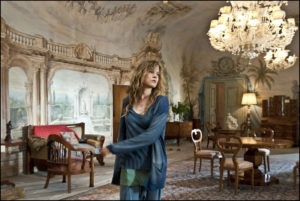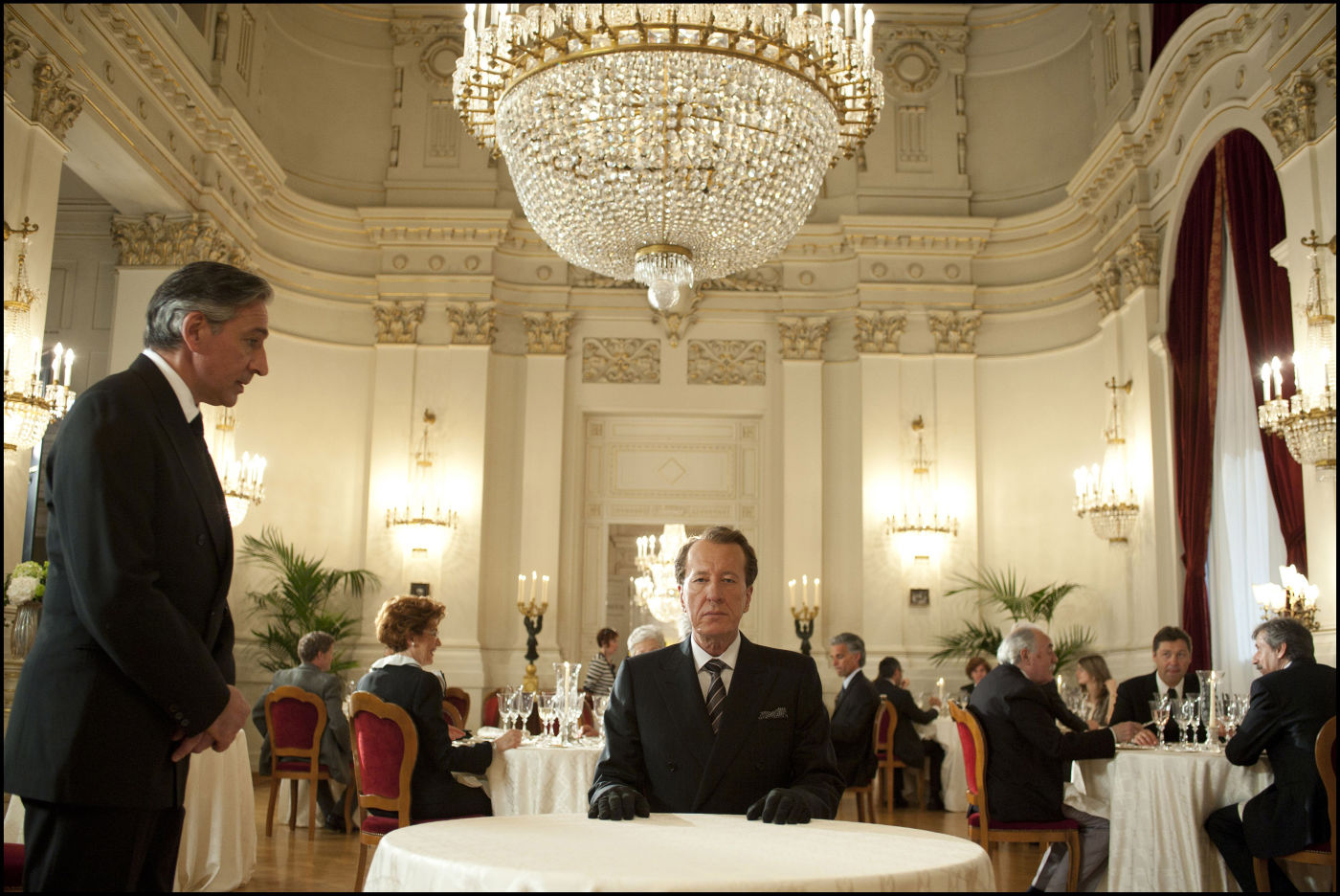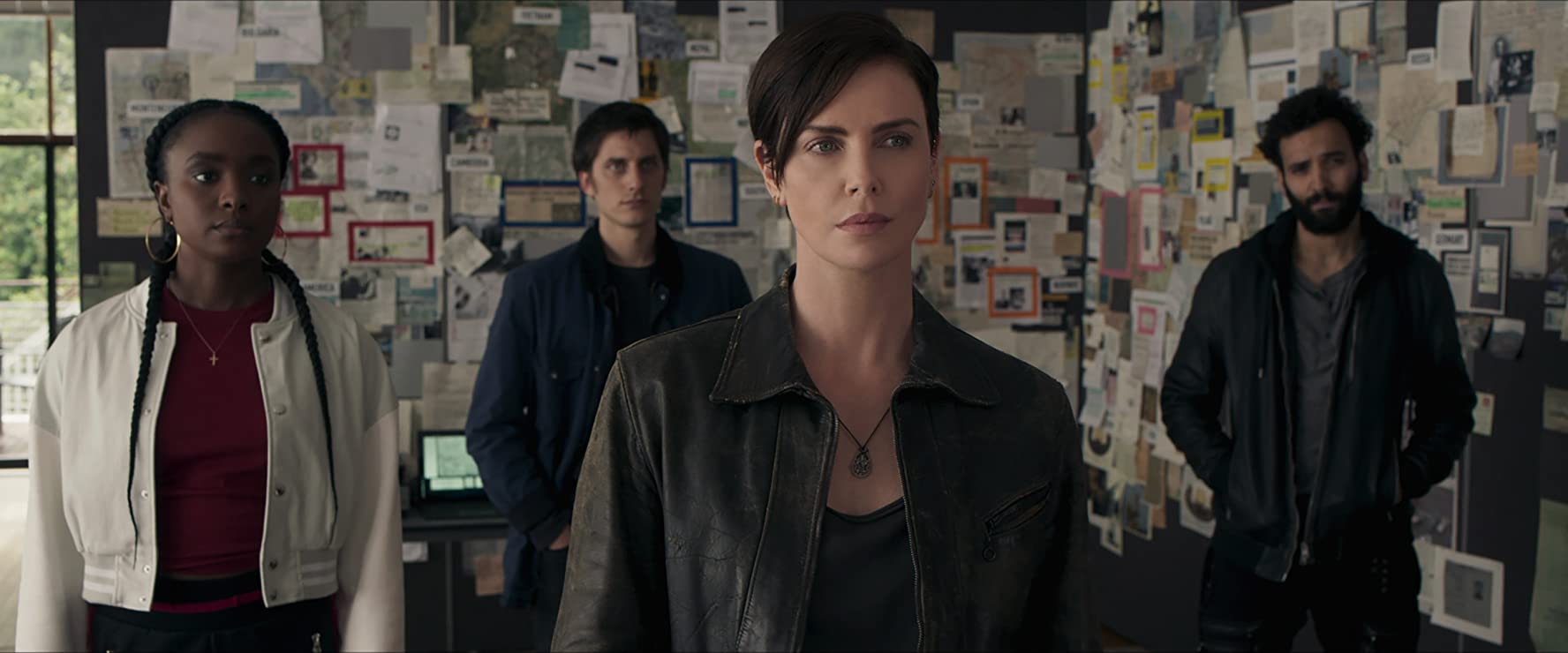The major problem with agoraphobia is obvious: Geoffrey Rush keeps coming around and asking how you’re doing. And if you think that’s bad, imagine Geoffrey Rush being, quite literally, the only person in your life. Oh my, there’s a sad thought. Living as a shut–in? Never going outside? Nothing but “me” time and silence? All of these I can live with … but the idea the only visitor you ever get is Geoffrey Rush? That might send me over the edge.
Virgil Oldman (Rush) has overcome his terrible name to become, perhaps, the most respected art curator in Europe. He runs an auction house and handles all the big details personally, including the shows. His schedule and habits are timed to the minute. I assume that normally the very closed Mr. Oldman would delegate auctioneering, but he and Donald Sutherland have a scam going to collect undervalued works of art. Such has made for a very rich Old-man; this joker even has a private hideaway filled toe-to-museum-height-ceiling with masterpieces – all of them portraits of women. These paintings essentially constitute a marriage; there are no live women in his life.
Enter Claire Ibbetson (Sylvia Hoeks), and agoraphobic young woman of extreme financial independence and extreme social dependence. She wants to use Oldman to sell off her considerably valuable estate, but proves equally as rigid as her unwillingness to compromise in any way, like even meeting him. This is obviously her selling point. She’s fast enough for you, Oldman. And after the art aficionado gets over his initial disgust at the woman’s psychological inability to honor timetables, he becomes fascinated. You can practically read the thought bubble, “Wow! Here’s somebody just as screwed-up and dead inside as me!” That fact that Mr. Oldman is the only caller on Ms. Ibbetson seems to excite them both in a way – their professional bond is bound to become personal.
Several strange story lines follow this odd romance between Virgil Oldman and a door. One is Oldman confides in his own Cyrano, Robert (Jim Sturgess), on how to proceed in the relationship. Second is Oldman becomes obsessed with seeing this woman whom he only knows by voice. Her reluctance to show so much as an eyeball through a keyhole becomes as much of a fascination to him as his personal closet gallery. Third, every time Virgil takes inventory of the Ibbetson collection, he finds a small metallic piece to a larger mechanical device – a cog, a set of screws, a ski rack, etc. The latter piqued my interest more than the former – how can he keep finding new pieces in a house nobody visits? And what do they make – some sort of pre-historical  automaton? Luckily, Robert is also an expert an electronics expert. Well isn’t that conveeeeenient?
automaton? Luckily, Robert is also an expert an electronics expert. Well isn’t that conveeeeenient?
Yo, writer/director Giuseppe Tomatore, you’re really into mechanical people here … is “Giuseppe” another form of “Geppetto?” Just askin’.
It’s hard to know exactly what to attribute The Best Offer title to. I think it has to do with an understanding that companionship is superior to wealth, but how the film plays out makes me question that entire thesis. The Best Offer is a rare “Reverse Bell Curve” film in which Acts I & III are strong, but Act II was decidedly weak. There is no question that as the romance develops, the picture falls – and not necessarily because the romance is weak, more as a result that story lines get lost in mix (is there premature resolution here or what?) … but this is all part of a larger design. I wouldn’t call the film a masterpiece, yet this is clearly a superior work of art as compared to your average film.
You are my painting, I see you each day
You will remain young when I’m old and gray
Faithful forever, my trust won’t betray
Yes, we don’t touch. I like it that way
Rated R, 131 Minutes
D: Giuseppe Tornatore
W: Giuseppe Tornatore
Genre: If I tell you, that would spoil it
Type of person most likely to enjoy this film: Art enthusiasts
Type of person least likely to enjoy this film: The impatient



